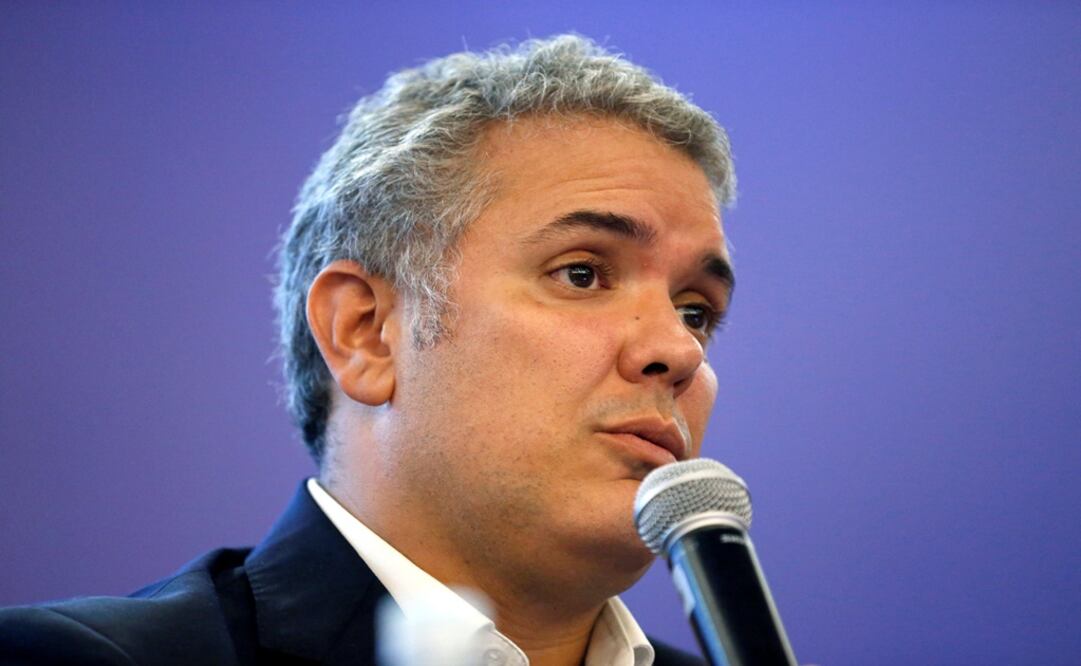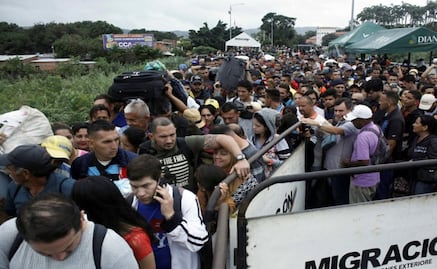Más Información
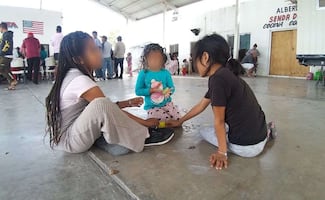
ONG exige investigación por la muerte de dos niñas en DIF de Oaxaca; "migrar no debe costar la vida", afirma
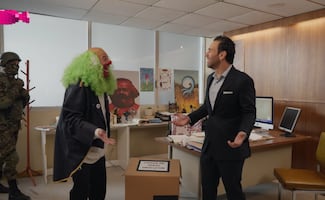
Brozo y Loret visitan el “refugio” de Marx Arriaga tras caída de “El Mencho” y lanzan duro mensaje; “se acabaron los abrazos”

Economía mexicana tuvo un modesto crecimiento en 2025: Hacienda; fue "debajo de lo que necesitamos", admite

Guatemala refuerza su frontera con México tras muerte de "El Mencho"; busca evitar "casas de seguridad o corredores de escape"
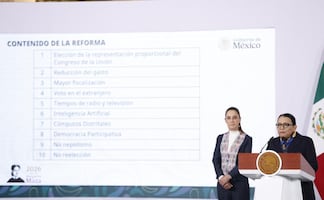
Reforma electoral: Estos son los 10 puntos clave; plantea que el Congreso tendrá 500 diputados por elección directa y 96 senadores

Detienen a tercer funcionario por muerte de dos niñas haitianas en albergue del DIF Estatal Oaxaca; investigan responsabilidades
Colombia’s President-elect Iván Duque Márquez
took office on Tuesday, opening a new chapter in the South American nation with potential consequences for its peace process , the crisis in neighboring Venezuela and regional stability .
As the youngest head of state in Colombian recent history , the conservative Duque is dealing with enormous challenges.
During his campaign, often criticized for its alleged lack of substance and long-term vision, the 42-year-old new president consistently vowed to unilaterally amend the historic peace agreement with the Revolutionary Armed Forces of Colombia ( FARC ), remove its leaders from Congress—they won ten seats in the May 27 elections —and threatened to end talks with the country’s second-largest guerrilla, the National Liberation Army ( ELN ).
His position regarding the peace process is crucial to understand Colombian politics since Duque is a protege of the former President Álvaro Uribe ( 2002-2010 ), who managed to decimate the leftist rebels in the battlefield with American counterinsurgency support through the Plan Colombia initiative , although his government was accused of mass human rights violations.
Former Defense Minister and Uribe’s successor in the Nariño Palace, Juan Manuel Santos , seized the opportunity to end Latin America’s longest armed conflict negotiating with FARC despite the stiff opposition of Uribe, now considered the leader of the right-wing factions, landowners and businessmen coalesced around his Democratic Center ( CD ) party.
Uribe and then-senator Duque promoted the “ no ” in the referendum to ratify the peace agreement on October 2, 2016 , arguing it was too lenient with the rebels and in the closed results, 50.2% of citizens voted against the deal, forcing to reopen the negotiations.
Afterward, Congress ratified the revised agreement on November 29-30, 2016 and Santos was awarded the Nobel Peace Prize .
Many elements of the peace deal are enshrined in the Constitution and its reform, especially regarding the key areas of historic truth and justice for the victims will need more than a simple majority vote in the two chambers of Congress.
Duque would require a coalition with the Conservative Party and the Liberal Party , which exercised a virtual duopoly in power for most of the 20th century .
First test
The new president will face his first serious test on September 3 , as Uribe is expected in the Supreme Court on charges that he and his allies tampered witnesses that have accused his family of forming paramilitary units , the dreaded death squads responsible for murdering thousands of peasants and union activists in Antioquia and other provinces.
Duque, who has called Uribe “ Eternal President ,” expressed his support for him while the CD launched a smear campaign against the judges in charge of the investigation.
More than 60 lawmakers are currently in prison over their ties to the “ paracos ” and drug traffickers .
For its part, the International Criminal Court could open criminal investigations and request to Bogotá the extradition of 23 generals and six colonels .
In the economic field, Colombia avoided a recession after the end of the commodities boom in 2014, yet Santos was forced to impose austerity measures limiting spending on public education, health care, infrastructure, and employment.
The diversification of the economy and the development of the service sector have been hampered by the growing dependency on the oil exports .
The relation with Venezuela is another open question. While the civil aviation authority banned drones from entering the Bolívar Square in Bogotá , where Duque was sworn in as the country’s 60th president after Saturday’s air attack against his colleague Nicolás Maduro in Caracas , there is little appetite for a confrontational stance which could aggravate the Venezuelan humanitarian crisis.
More than a million people have headed to Colombia , where the outgoing government signed a decree last week granting residency and work permits to 440,000 undocumented Venezuelan migrants.
On Tuesday, Brazil re-opened its border in Roraima state to Venezuelans, just hours after a court ordered the frontier to be closed amid a wave that has left nearly 6 0,000 people requesting refugee or residency in the country since 2015.
Contrary to the expectations created by the peace deal, coca production is soaring and the United States remains the primary market for Colombian cocaine exported via México and the neighboring Central American countries.
In spite of the programs for alternative crops subsidized with public funds —the palm oil boom was exploited by the paramilitaries displacing entire indigenous and agrarian communities—the drug trade remains far too lucrative for the international organized crime allied to ELN and the neo-paramilitary group Clan del Golfo .
These and other criminal groups are also operating in the Venezuelan borderlands, where the armed forces have destroyed clandestine landing strips and shot down Mexican cartels’ planes.
The complex domestic and international situation will test the political skills of the unexperienced Duque.
For now, the most important cabinet positions have been given to “ uribistas ” willing to restore the hard-line policies of their master.
Sooner or later, however, Duque will find, as Santos did, an opportunity to break with the past if he wants to leave his own mark in Colombian history.
Edited by
More by
Noticias según tus intereses
[Publicidad]
[Publicidad]




